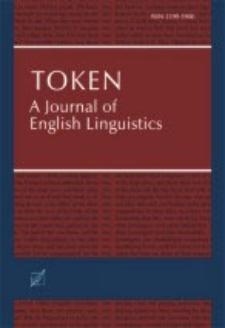Digital Library of the Jan Kochanowski University contains 13 466 digital objects
Object
Title: From “British Subjects” to “American People”:Transformation of national identitiesin a corpus of American newspapers (1764-1783)
Creator:
Group publication title:
Abstract:
This paper examines the way in which the British colonists of North America frame their national identity in the socio-political and judicial debates which are voiced in the press in the period before and after the Declaration of Independence. To this purpose, I constructed a corpus of newspaper articles from 1764 to 1783 and I analysed the most frequent descriptors used by authors to encode their national identity in discourse, focusing on recurrent collocational and colligational patterns. Results show that colonists adopt discourse strategies of assimilation, perpetuation and dismantling across the two decades. If until the mid-1770s they enhance their sameness with native Britons on the basis of their common cultural inheritance and historical memory, after 1776 colonists seek to construct an autochthonous American nationality. Although they appear to be neither able nor willing to see themselves as dis-membered from the British Empire, the years of the Revolution set the premises for the development of a post-British national identity.
Place of publishing:
Physical description:
ISSN:
Publisher:
Wydawnictwo Uniwersytetu Jana Kochanowskiego w Kielcach
Date issued:
Identifier:
oai:bibliotekacyfrowa.ujk.edu.pl:7994 doi:10.25951/4845
Language:
Is part of:
Token : A Journal of English Linguistics
Has part:
Type:
Access rights:
Format:
Object collections:
- JKU Digital Library > University Publishing
- JKU Digital Library > University Publishing > Serial publications
- JKU Digital Library > University Publishing > Serial publications > "Token : A Journal of English Linguistics"
Last modified:
Apr 4, 2025
In our library since:
Feb 13, 2023
Number of object content hits:
82
All available object's versions:
https://bibliotekacyfrowa.ujk.edu.pl/publication/4845
Show description in RDF format:
Show description in OAI-PMH format:
Objects Similar
Cecconi, Elisabetta
Cecconi, Elisabetta Newman, John G. Ed. Dossena, Marina. Ed. Samson, Christina. Guest Ed. Cecconi, Elisabetta. Guest Ed. Martini, Isabella. Guest. Ed.
Cecconi, Elisabetta Samson,Christina Martini, Isabella Newman, John G. Ed. Dossena, Marina. Ed. Samson, Christina. Guest Ed. Cecconi, Elisabetta. Guest Ed. Martini, Isabella. Guest. Ed.

